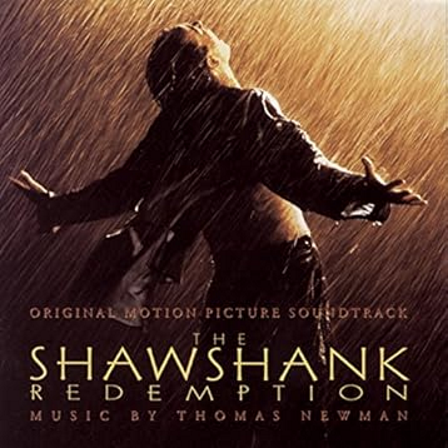From Jurassic Park to Schindler’s List: The 30 Greatest '90s Film Scores
The 1990s were a remarkable decade for film scores, delivering music that defined cinematic moments and left a lasting legacy. From soaring orchestral epics to intimate, character-driven compositions, these scores shaped how we experienced some of the decade’s greatest films. Below is our definitive list of the top 30 film scores from the 1990s, celebrating the composers who brought these stories to life with unforgettable music.
Thomas Newman’s tender, minimalist score infuses this romantic drama with a sense of mystery and introspection, using delicate piano and strings to underscore its emotional depth.
Elfman’s understated score, paired with Elliott Smith’s songs, complements the film’s introspective tone, adding warmth and vulnerability to its coming-of-age story.
Goldsmith’s patriotic, pulse-pounding score amplifies the high-stakes action, with its bold brass themes embodying the film’s heroic spirit.
Goldsmith’s rugged, suspenseful score captures the survivalist tension of this wilderness thriller, blending ominous strings with moments of triumph.
David Arnold’s bombastic, triumphant score matches the film’s epic scale, with its rousing themes evoking sci-fi grandeur and human resilience.
Horner’s score blends tension and hope, with soaring horns and delicate piano reflecting the mission’s peril and the astronauts’ courage.
Zimmer’s intense, militaristic score, with its driving percussion and choral swells, heightens the submarine thriller’s claustrophobic drama.
Randy Newman’s playful, jazzy score, paired with songs like “You’ve Got a Friend in Me,” perfectly captures the heart and humor of Pixar’s groundbreaking debut.
Shore’s gentle, small-town score uses subtle strings and piano to underscore the film’s quiet, character-driven charm, adding warmth to Paul Newman’s performance.
Horner’s sweeping, romantic score, with its lush strings and emotional depth, mirrors the epic saga of love and loss in the American West.
Don Davis’ industrial-electronic score fuses with orchestral intensity, creating a futuristic soundscape that defined The Matrix’s revolutionary vibe.
Elfman’s quirky, gothic score, with songs like “This Is Halloween,” brings Tim Burton’s spooky fairy tale to life with haunting charm.
Goldsmith’s jazzy, noir-infused score evokes 1950s Los Angeles, with sultry brass and strings amplifying the film’s gritty elegance.
Yared’s Oscar-winning score weaves Hungarian folk motifs with lush orchestration, capturing the film’s tragic romance with breathtaking beauty.
Menken’s magical score, paired with iconic songs like “Be Our Guest,” earned an Oscar for its fairy-tale enchantment.
Arnold’s exotic, epic score blends Middle Eastern influences with grand orchestral themes, perfectly suiting the film’s sci-fi adventure.
Goldsmith’s uplifting, underdog score, with its soaring horns and emotional crescendos, makes every moment of Rudy’s triumph unforgettable.
Broughton’s robust, Western score, with its bold brass and sweeping strings, captures the rugged heroism of this iconic retelling of the O.K. Corral.
Elfman’s gothic, operatic score deepens the dark whimsy of Tim Burton’s sequel, with its brooding themes for the Caped Crusader and Catwoman.
Horner’s adventurous, nostalgic score evokes classic Hollywood heroism, with soaring themes that lift this pulp-inspired gem.
Williams’ whimsical, larger-than-life score captures the magic of Neverland, with playful motifs and grand orchestral flourishes.
Barry’s majestic, Oscar-winning score, with its sweeping strings and Native American influences, elevates the film’s epic portrayal of the American frontier.
Williams’ festive, mischievous score, with its iconic “Somewhere in My Memory,” perfectly blends holiday warmth with comedic energy.
Elfman’s bold, brassy score channels the 1930s comic-strip aesthetic, with jazzy flair and dramatic underscores that amplify the film’s stylized charm.
The iconic “Promentory” theme, with its Celtic intensity, drives this score, capturing the raw emotion of this historical epic.
Newman’s poignant, understated score, with its delicate piano and strings, underscores the film’s themes of hope and redemption.
Silvestri’s gentle, iconic score, led by the feather-light main theme, weaves through decades, embodying the film’s heart and optimism.
Williams’ awe-inspiring score, with its majestic main theme, captures the wonder of dinosaurs reborn, becoming a cultural touchstone.
Horner’s stirring, Celtic-infused score, with its bagpipes and soaring melodies, amplifies the film’s epic battles and emotional core.
Williams’ haunting, violin-led score, featuring Itzhak Perlman’s solos, is a masterwork of sorrow and humanity, perfectly complementing the film’s profound weight.
The 1990s were a pinnacle for film music, with composers like John Williams, James Horner, Danny Elfman, and Hans Zimmer delivering career-defining work. These scores didn’t just enhance their films—they became inseparable from them, shaping how audiences felt about these stories. From the heart-pounding action of Crimson Tide to the tender introspection of Good Will Hunting, these soundtracks remain timeless.




